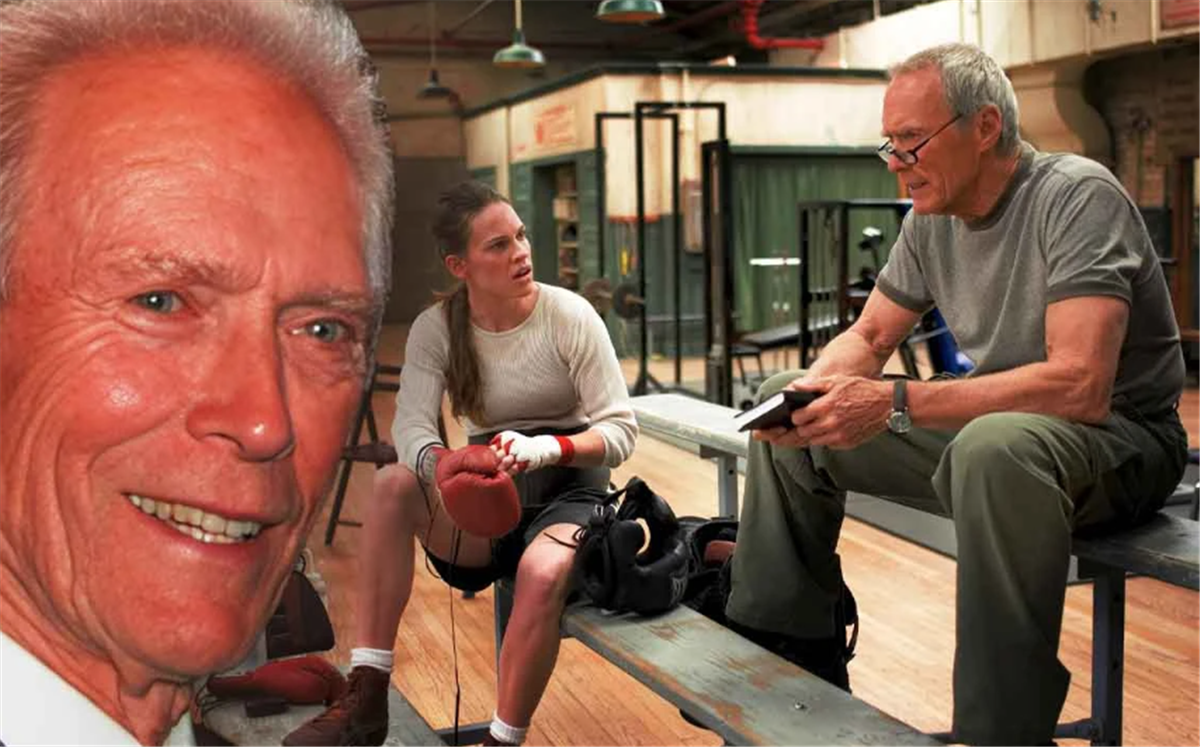Clint Eastwood did not believe that he had many acting roles left to do at his age. However, Eastwood had already made a backup plan if he or the viewers had enough of his acting. His main intention for stepping into the director’s shoes in his 1971 film Play Misty for Me was to stay behind the camera even after retiring from acting. It came as a blessing since Eastwood won his first Oscar as a director for his 1992 film Unforgiven.
In 2004, he won his second Oscar, again as a director, for Million Dollar Baby. Moreover, he has directed five actors in Oscar-winning performances. Throughout these years, Eastwood also took up some acting roles, like in his 2004 directorial venture, despite his insecurities about acting.
Clint Eastwood’s Acting Insecurities Turned Him Into An Oscar-winning Director
Clint Eastwood adapted the book Rope Burns: Stories from the Corner into the film Million Dollar Baby in 2004 and decided to play the role of trainer Frankie Dunn himself. Eastwood found the underappreciated boxing trainer to be interesting and believed that he could pull it off like any other actor. When asked whether he still liked to act in a 2005 interview with Film Comment, Eastwood had a rather interesting answer.

He admitted that he loved to act but had often threatened to quit due to his old age at the time. He believed that he couldn’t do a lot of great roles at that age. He went on to share that his directing career was a backup plan in case he had to stop his acting career at some point. He believed that he could still remain a part of films as a director. Eastwood shared with Film Comment:
You know, I do. I’ve threatened to quit, but maybe that’s a defense mechanism, because there aren’t enough good roles at my age. That’s probably true, and if it is, I’ll stay behind the camera. The reason I started directing 37 years ago was I thought some day I or the audience would probably look at the screen and say, ‘That’s enough of that.’
He further went on to share that he particularly enjoyed directing his film Mystic River, which came before Hilary Swank‘s boxing drama. In the 2003 film, Eastwood solely worked as a director, and he had a great time observing other actors conquering difficult scenes during filming. He shared:
I had a great experience directing the last film [Mystic River] without being in it. I’m always amazed looking at other actors when they’re conquering the difficulties of different sequences. But this one, I thought Frankie Dunn is interesting, and I’ll be able to do it as well as the next guy.
Million Dollar Baby won four major awards out of its seven nominations at the 77th Academy Awards. The Dirty Harry actor was recognized with the Best Director Oscar, and his film received the Best Picture Oscar. Swank and Morgan Freeman were also the recipients that year in acting categories.
Clint Eastwood’s First Oscar-Winning Film Was a Mythbreaking Western

Clint Eastwood’s first Oscar win came as a director, and it also came for his last Western movie, Unforgiven. He decided to give up on the genre since he didn’t want to tell the same old stories again. However, he went out with a bang since he deconstructed the genre itself with the 1992 film.
Many people considered his film as anti-Western initially since it destroyed many of the genre’s long-standing myths. He once said that the film wasn’t “anti-Western” but rather a “mythbreaking Western” (via Far Out Magazine). He told Empire that Unforgiven was the “perfect last Western” for him, as he shared:
I felt like that was the genre I became known in, it had been so good to me, and that this would be the perfect last western for me.
The film broke the concept of a black-and-white hero with William Munny’s dark, ugly backstory, making him a grey-shaded character. Gene Hackman‘s cruel character broke the good guy image of the Town Sheriff in Westerns. S*x workers were shown in a more positive light, and the film showed a cowboy who vows to never take another life after his first kill.
